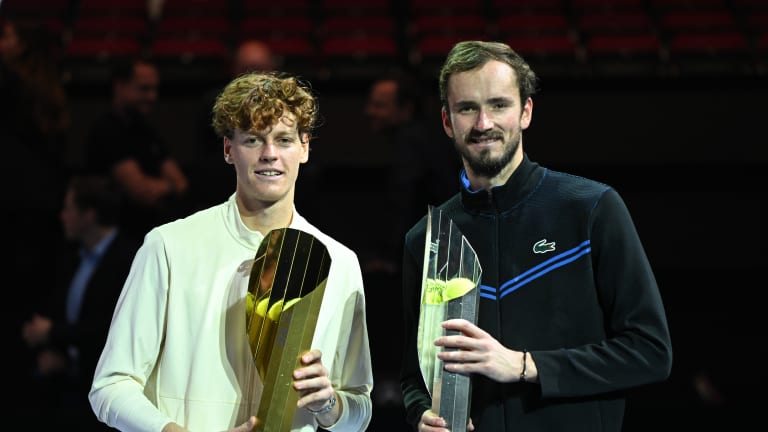Weekend Winners
A stubborn Jannik Sinner reigns Vienna, while Felix Auger-Aliassime says he's 'definitely back' in Basel repeat
By Oct 29, 2023Weekend Winners
The Top 5 most important developments of a manic first week of the 2025 tennis season
By Jan 05, 2025Weekend Winners
Giovanni Mpetshi Perricard, Jack Draper show big-match poise in Basel, Vienna
By Oct 27, 2024Weekend Winners
Antwerp champion Roberto Bautista Agut represents a generation that refuses to go quietly
By Oct 20, 2024Weekend Winners
"What just happened?" Alexei Popyrin joins Jessica Pegula in making pre-US Open statement
By Aug 13, 2024Weekend Winners
In Charleston and Houston, Danielle Collins and Ben Shelton pulled off a rare U.S. double on the dirt
By Apr 08, 2024Weekend Winners
In Acapulco and Dubai, Alex de Minaur and Ugo Humbert made themselves players to watch this spring
By Mar 03, 2024Weekend Winners
Chris Eubanks wins his first match for his country, and it may not be his last
By Feb 05, 2024Weekend Winners
Three takeaways from a high-quality first week of the 2024 tennis season
By Jan 07, 2024Weekend Winners
Alexander Bublik, Gael Monfils and Ben Shelton are flashy champions with substance, too
By Oct 22, 2023Weekend Winners
A stubborn Jannik Sinner reigns Vienna, while Felix Auger-Aliassime says he's 'definitely back' in Basel repeat
Two young talents each showed something different in their victorious runs indoors in Europe.
Published Oct 29, 2023
Advertising

Sinner beat Medvedev in a final for the second time this month (Beijing, Vienna).
© Getty Images
Advertising
Advertising

Auger-Aliassime last played a final 12 months ago in Basel, and returned to win it again.
© Getty Images